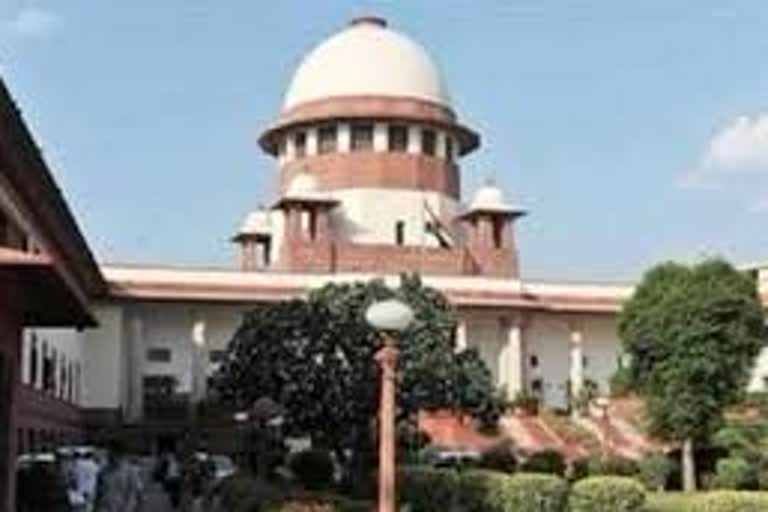New Delhi:The Supreme Court on Thursday deliberated on ways to clear roadblocks in the expeditious disposal of cases of sexual offences against children and favoured a pro-active role by the Centre in providing funds for infrastructure and manpower.
It discussed threadbare the issues such as lack of infrastructure and huge vacancies in subordinate courts, delays in forensic science laboratory (FSL) report due to the inadequate number of laboratories and need for designated courts to deal with cases under the Protection of Children from Sexual Offences (POCSO) Act.
The top court was of the view that the special Act to deal with sexual offences against children has enumerated the modalities of addressing the registration of FIRs, the appointment of prosecutors, the procedure for trial, compensation, among others, for providing speedy justice.
"You have started with education, sensitization and then you have gone to the investigation.
Early conclusion of investigation and commencement and early conclusion of a trial in these cases are the areas in which we will go," said a bench headed by Chief Justice Ranjan Gogoi.
"So far as investigations are concerned, what are the drawbacks and bottlenecks," the bench asked senior advocate V Giri, who is assisting it as an amicus curiae in the case relating to 'alarming rise in the number of reported child rape incidents'.
At the outset, Giri told the court that trial in POCSO cases was getting delayed due to non-availability of FSL reports and the states should be asked to mandatorily provide for the establishment of dedicated FSL exclusively for POCSO cases in each district where the number of incidents reported is more than average.
He said that states should have special juvenile police but none of the states have paid attention to this.
"In how many states special juvenile police is constituted and in how many states special (POCSO) courts are constituted," the bench asked Giri and said that even in regular courts, a jurisdiction for trying cases under POCSO can be issued through a notification.
Giri said that special courts were there in the states.
The bench then asked as to why Solicitor General Tushar Mehta has not appeared in the matter despite the apex court's order asking him to assist it in the case.
"They make long, long statements before media but when it comes to actual work, nobody appears and nothing is done," the bench said. Mehta later appeared in the matter.
The bench observed that trial court judges dealing with cases under special law were overburdened with the number of cases assigned to them.
"There is one judge in a special court and you give him cases after cases and then ask him to complete the case within three-four or six months," the bench said.
